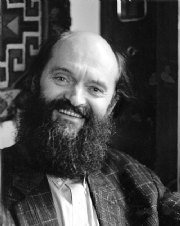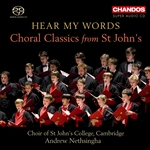Arvo Pärt
Arvo Pärt (Estonian pronunciation: born 11 September 1935) is an Estonian composer of contemporary classical music. Since the late 1970s, Pärt has worked in a minimalist style that employs tintinnabuli, a compositional technique he invented. Pärt's music is in part inspired by Gregorian chant. His most performed works include Fratres (1977), Spiegel im Spiegel (1978), and Für Alina (1976). From 2011 to 2018, and again in 2022, Pärt was the most performed living composer in the world, and the second most performed in 2019, after John Williams. The Arvo Pärt Centre, in Laulasmaa, was opened to the public in 2018.
He converted to Orthodox Christianity in 1972 upon marrying his second wife, Nora.[9]
In 1980, after a prolonged struggle with Soviet officials, he was allowed to emigrate with his wife and their two sons. He lived first in Vienna, where he took Austrian citizenship, and then relocated to Berlin in 1981. He returned to Estonia around the turn of the 21st century and for a while lived alternately in Berlin and Tallinn. He now resides in Laulasmaa, about 35 kilometres (22 mi) from Tallinn. He speaks fluent German as a result of living in Germany from 1981.
In 2010, the Pärt family established the Arvo Pärt Centre, an institution responsible for maintaining his personal archive, in the village of Laulasmaa. A new building of the centre opened to the visitors on 17 October 2018, containing a concert hall, a library, and research facilities. The centre also offers educational programmes for children and operates as an international information centre on Pärt's life and work.
In April 2020, although Pärt rarely gives interviews, he spoke to the Spanish newspaper ABC about the COVID-19 pandemic, stating that it was a "mega fast" and reminded him to follow the example of John Updike, who "once said that he tried to work with the same calm as the masters of the Middle Ages, who carved the church pews in places where it was impossible to see them".














 My Wish List
My Wish List












